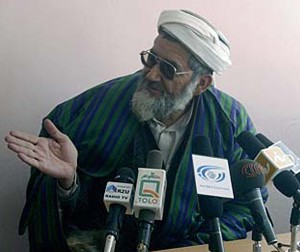ForeignPolicy.com, January 23, 2008
Downloading: Punishable by death?
Why did the U.S. go into Afghanistan and topple the Taliban, only to have it be replaced with a system like this?
Christine Y. Chen
Someone please explain to me how this is supposed to be justice. A 23-year-old journalism student named Sayad Parwez Kambaksh supposedly goes online, finds an interesting paper, and prints it out. He supposedly brings it to class at Balkh University, discusses it with a teacher and some fellow students. The paper gets copied and distributed. Some students find it objectionable; they say it is offensive and that it insults Islam. They complain to the government.
Kambaksh is arrested in October and put in jail. He says he had nothing to do with the paper. His case goes to trial, but he has no lawyer. In fact, his family is not even aware that he's put on trial. A panel of three judges decides that he should be put to death because the paper he supposedly distributed "humiliates Islam." The Afghan Independent Journalists' Association reports that any paper in question may have downloaded from an Iranian blog, which contained articles questioning the origins of the Koran, among other controversial things.
Now, his case goes to the first of two appeal courts. But Fazel Wahab, the chief judge in the province where the trial took place, says that only President Hamid Karzai can pardon the student, since Kambaksh supposedly confessed to having violated tenets of Islam. Incidentally, Wahab has never read the paper (to be fair, he was also not on the panel that convicted Kambaksh).
Kambaksh isn't the only Afghan journalist who's gotten into trouble with the law. Ghows Zalmai was also arrested three months ago, charged with distributing a translation of the Koran that clerics did not accept. Religious scholars have also called for him to be put to death.

Jan 23, 2008: Moulvi Shamas-ul-Rehman Moomand head of the Primary Provincial Appeals Court, who has sentenced Sayad Parwez Kambaksh to death gestures during a press conference at the court in Mazar-i-Sharif, the capital of Balkh province. (AP Photo/Sameer Najafizada)
At any rate, all of this raises the question: Why did the U.S. go into Afghanistan and topple the Taliban, only to have it be replaced with a system like this? So far, no comment from Karzai, who is attending the World Economic Forum in Davos. But he'd better step up.
The Telegraph, Jan.23, 2008:
... campaigners believe that the court's real motive was not protecting the honour of Islam. Mr Kaambakhsh's brother, Yaqub Ibrahimi, also works as a journalist and has written a series of reports on atrocities committed by senior politicians in northern Afghanistan.
The authorities may have been trying to silence him by threatening Mr Kaambakhsh's life. Jean MacKenzie, country director for the Institute for War and Peace Reporting, which trains Afghan journalists, said: "We feel very strongly that this is a complete fabrication on the part of the authorities up in Mazar, designed to put pressure on Parwez's brother, Yaqub, who has done some of the hardest-hitting pieces outlining abuses by some very powerful commanders in Balkh and the other northern provinces."
 By Afghan Cartoonist Atiq Shahid
By Afghan Cartoonist Atiq ShahidCharacters Count: 4035

